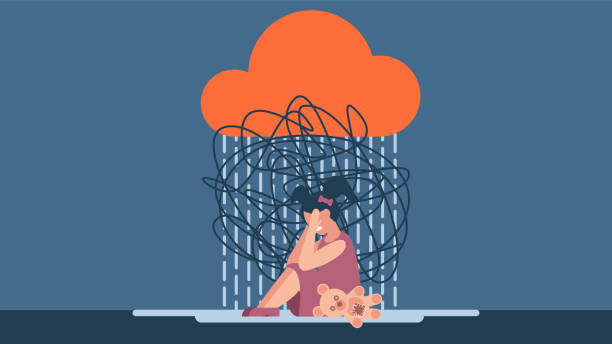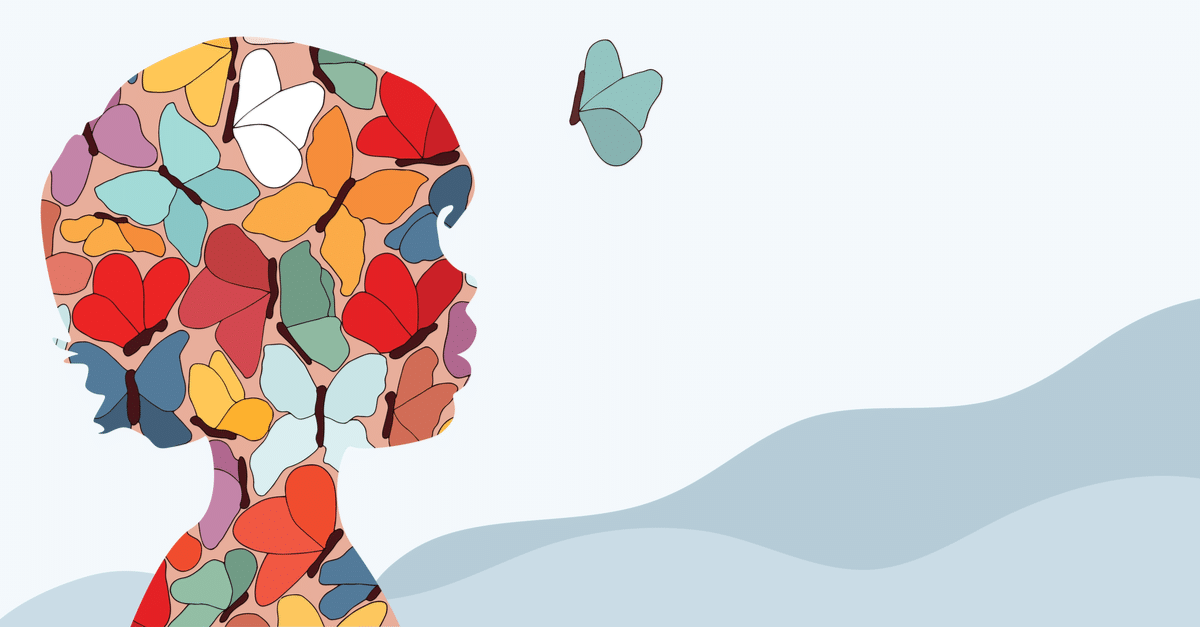
What is childhood trauma?
According to the National Institute of Mental Health, childhood trauma is defined as “The experience of an event by a child that is emotionally painful or distressful, which often results in lasting mental and physical effects (2).” Childhood trauma can range from many different things. Some common forms include experiencing physical, sexual, and emotional abuse, surviving natural disasters, experiencing isolation, and being neglected (1). More examples include experiencing racism, losing a loved one, living with caregivers that have severe mental illnesses, and witnessing domestic violence (3).
Emotional Regulation:
Experiencing childhood trauma can impact how children regulate and express their emotions in a negative way. As a result of having childhood trauma and multiple triggers, children will often react to various situations in an unpredictable manner (1). For example, children who have experienced child sexual abuse (CSA) can experience emotional dysregulation, and are more likely to be diagnosed with multiple behavior problems than a child who has not experienced CSA. This can also include bullying other children, or taking part in self-harming behaviors (5). Emotional dysregulation is something that describes having a difficult time with processing your emotional responses and regulating them. Symptoms of emotional dysregulation can include getting easily overwhelmed by your own emotions, impulsive behaviors, troubles with controlling your stress levels, sudden mood swings, not being able to calm down, and crying for what seems to be for no reason (10). When children go through trauma, they become good at hiding pain, and their emotions. These children develop the mindset that the world is out to get them, and they have trouble understanding that they deserve good things to happen in their lives (4). Children are at an age where their emotional intelligence hasn’t fully developed. As a result of this, children who have experienced trauma may have trouble thinking things through, and focusing on day-to-day activities. This can lead children to acting out since they may crave attention, even if it is negative attention (4).Externalizing behavior is another common emotional reaction that many children experience. This includes “random” bursts of anger, defiance, and physical aggression (9). Experiencing trauma at an early age can also make a child vulnerable to developing anxiety disorders, depression, and post-traumatic stress disorder (6). When children experience neglect, it can lead to them never having the opportunity to learn how to calm themselves down when they are upset. This can make them get easily overwhelmed over situations that seem small to others, and it can also lead to them giving up on tasks very easily after not understanding them the first try (7). Children with complex trauma can also experience troubles with problem solving, thinking clearly, and planning ahead. This is because when children grow up with their brains always thinking there is a threat somewhere, the only thing the brain can focus on is survival. There is no time for them to think about the future when they feel that they are in danger (7). Dissociation can also occur in children with trauma. This is when children separate themselves from reality, and how they experience things mentally and emotionally. This can even cause them to feel like the things happening around them are happening to someone else, and they can imagine that they are outside of their bodies (8).
Coping mechanisms:
Many of the symptoms above can occur when a child experiences an event that reminds them of the trauma they have faced. For example, if their trauma stems from parental abuse, hearing an adult yell could trigger the child and bring back traumatic memories and confusing emotions (7). However, there are things children can do to respond to the negative emotional effects they are feeling. Some strategies include practicing deep breathing regularly and talking to a trusted counsellor. This may be difficult at first since children tend to be extremely distrusting after experiencing trauma, but there is always hope, and with time it is possible to gradually learn to trust once again (11). Parents or guardians can also help their child heal from these events and help with processing their emotions. Strategies include reminding their child that they are safe, explaining to them that they are not responsible for what happened to them, and having lots of patience (11)!

Next post: For my next round of research, I will focus on how childhood trauma can impact the social relationships of a child. When people experience trauma, it becomes more difficult to build healthy relationships and trust others, and I want to have a deeper understanding of why that is. This will help me answer my inquiry question because social skills are a huge part of child development, and in order to understand how childhood trauma impacts child development, I need to look at various areas of that. I focused mainly on emotional behaviors for my current research round, and that gave me a good foundation to begin researching social aspects as well. After I research social relationships in childhood trauma survivors, I will have a better understanding and a new perspective and aspect of child development, and that will bring me one step closer to answering my question.
Thank you for reading!
References:
- Peterson, S. (2018, June 11). Effects of child trauma. The National Child Traumatic Stress Network. Retrieved from https://www.nctsn.org/what-is-child-trauma/trauma-types/complex-trauma/effects#:~:text=Emotional%20Responses&text=They%20often%20internalize%20and%2For,anger%2C%20sadness%2C%20or%20avoidance.
- ICTC. (2019). About trauma. Illinois Childhood Trauma Coalition. Retrieved from https://theictc.org/about-trauma/#:~:text=According%20to%20the%20National%20Institute,lasting%20mental%20and%20physical%20effects.%E2%80%9D
- King-White, D. (2022, June 7). Childhood trauma: Types, causes, signs, and treatments. Choosing Therapy. Retrieved from https://www.choosingtherapy.com/childhood-trauma/
- Miller, C. (2023, February 7). How trauma affects kids in school. Child Mind Institute. Retrieved from https://childmind.org/article/how-trauma-affects-kids-school/
- Hébert, M. (2017, August 18). Cumulative childhood trauma, emotion regulation, dissociation, and behavior problems in school-aged sexual abuse victims. Journal of Affective Disorders. Retrieved from https://www.sciencedirect.com/science/article/abs/pii/S0165032717303154
- Marusak, H. A., Martin, K. R., Etkin, A., & Thomason, M. E. (2014, November 21). Childhood trauma exposure disrupts the automatic regulation of emotional processing. Neuropsychopharmacology. Retrieved from https://www.nature.com/articles/npp2014311
- Peterson, S. (2018, November 5). About child trauma. The National Child Traumatic Stress Network. Retrieved from https://www.nctsn.org/what-is-child-trauma/about-child-trauma.
- Morin, A. (2022, March 17). Alleviating childhood trauma. Verywell Mind. Retrieved from https://www.verywellmind.com/what-are-the-effects-of-childhood-trauma-4147640
- Pospisil, M. (2022, August 24). The impacts of childhood trauma on social development. Centerstone. Retrieved from https://centerstone.org/the-impacts-of-childhood-trauma-on-social-development/
- Dibdin, E. (2022, September 7). Emotional dysregulation and PTSD: The role of childhood trauma. Psych Central. Retrieved from https://psychcentral.com/ptsd/affect-dysregulation-and-c-ptsd
- SAMHSA (2023, March 17). Understanding child trauma. Substance Abuse and Mental Health Services Administration. Retrieved from https://www.samhsa.gov/child-trauma/understanding-child-trauma

Hey Shaila!
I am absolutely amazed by your question! It is so well thought out, and fascinating. One thing that I found interesting was that the brain only focuses on survival in childhood, because a threat is always being thought of. I wonder if that is another factor to why childhood trauma affects relationships and emotions throughout childhood to adulthood? I loved your use of photos, to help connect the text with a visual aid.
I love the research! Good luck!
-Rhea :))